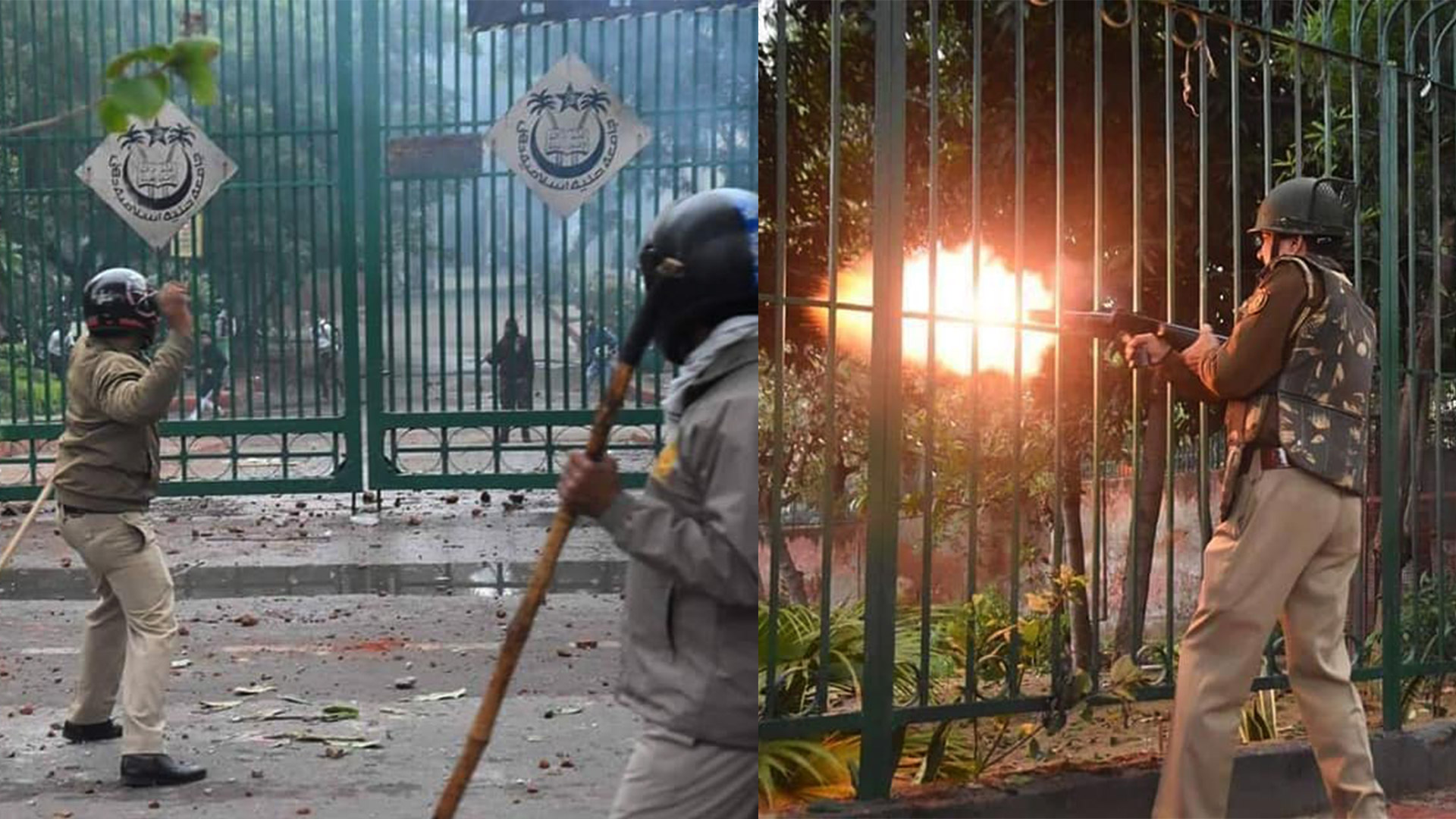
There has been a series of press statements and letters to the President and the Prime Minister by academics asserting the incontrovertible need for academic freedom and bewailing the current assault on it.
This insistence on academic freedom is of course beyond question.
But one would like to ask if freedom can be divided into slots, each with its own criteria and limits, to be adjusted according to an obscure scale of ‘public interest’ or if freedom by definition is indivisible. Such a notion appears to strike at the very root of equality, a bedrock principle of democracy.
At the time some years ago, when the police in Delhi had gone on the rampage and intruded on university campuses to thrash mercilessly students demonstrating on a serious public issue like civil rights or secularism, or had looked the other way when hooded goons entered a campus under their very noses and mounted an attack on targeted victims among students and faculty, a section of academics kept aloof from the widespread outrage sparked by such incidents.
Their plea had been that such disputes had little to do with the essence of academic freedom. Their conviction was that academic freedom stood for disinterested and dedicated commitment to pure research, away from the hustle and bustle of political or social disputes. Such disputes involved unavoidable bias and academic freedom was according to them basically a painstaking cultivation of impartiality. Learned bodies paid little heed to pleas for a clear position on vital political issues even when such trends were acquiring an alarming character.
One now finds some of them signing such petitions. This, one hopes, exposes the fallacy of their earlier position on academic freedom,which is still quite widespread.
Is it at all possible, also desirable, to divide freedom into compartments? Can we, and should we, divide freedom into such hermetic compartments? Such as freedom of the press, the independence of the judiciary, freedom of religion, right of freedom to protest without fear, and of course academic freedom?
Ultimately they all are but aspects of the freedom of mind. In Tagore’s memorable words, this is the broad domain where ‘the mind is without fear, and the head is held high’. And history has recorded numberless tyrannies that had stumbled on this rock and though thriving for some time had fallen flat never to get back on their feet.
Democracy is a resolute commitment to this universal freedom to all aspects of life. It is not absolute, but the limits are those that are acknowledged by all without any reservation. If one pleads for freedom in his or her sphere of life, this must come with the unhesitating grant of freedom in other spheres.
That entails the condition that you do not fail to rally round to any group fighting for freedom in deadly earnest, as when labour are fighting for their hard-earned bargaining rights. Freedom can’t be the comfort-zone where scholars wrestle with their problems without restraint, evincing little interest in the failure of courts to deliver speedy and effective verdicts. The independence of the judiciary does not depend on blemish-less judgments drawing strength from some perennial source of undefiled and impartial judiciary wisdom that prompts totally objective conclusions. When world opinion condemns your lack of freedom, one does not blankly allege some conspiracy to defame the country, because you had partaken of the freedom of UN forums to criticise other countries found wanting in basic freedom.
The enemies of freedom make no such mistake. They hound out the free spirit out of every such slot by turns, and infiltrate their own henchmen. They turn upside down the whole edifice of freedom and revel in the vacancy as something they can inscribe their writ on.
There is a struggle for freedom raging everywhere, and one does not enjoy the luxury of watching from the safety of one’s turf hands in pockets.
*The author is a highly respected Assamese intellectual, a literary critic and social-scientist from Assam. Views expressed are the author’s own.
Other pieces by Dr. Hiren Gohain: